Great reconciliation! Taobao and WeChat's 11-year "blocking war" finally ends
![]() 09/09 2024
09/09 2024
![]() 568
568
Only after the wall is broken down, everything has just begun.
The moment to witness history has arrived! The two internet giants officially join hands, and Taobao plans to fully introduce WeChat Pay.
Taobao and Tmall responded that they have always upheld the concept of open cooperation, actively explored interoperability with various platforms, and continuously improved the shopping experience for consumers, making shopping more convenient, enjoyable, and efficient.
WeChat Pay responded on the same day: Currently, the function adaptation with Taobao merchants is in progress, please refer to the Taobao platform announcement for the specific launch time. WeChat Pay has always adhered to the concept of open cooperation and actively explored interoperability with various sectors.
Alipay of the Alibaba Group and WeChat Pay of the Tencent Group have long been in a state of "water and fire cannot coexist." It is well-known in the e-commerce circle that Taobao does not accept WeChat Pay. The interoperability between the two companies has been rumored for a long time, but it has always been stuck in the opening of the Taobao port. Now, the shoe is about to drop, and Taobao will have to share the cake with its former rival.
Is this move a century-long reconciliation by Taobao putting aside its arrogant stance, or is there another consideration behind it?
01 The Beginning and End of the Two Giants' "Wall-Building"
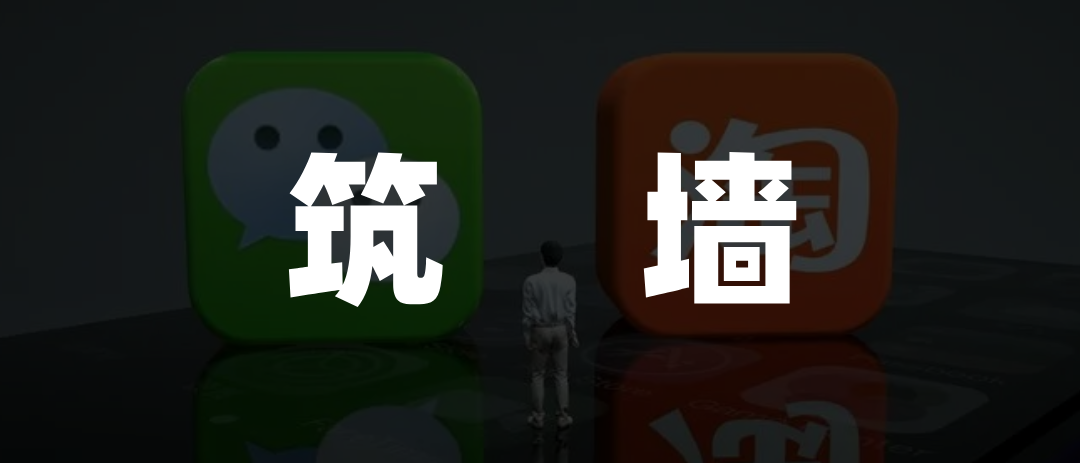
The mutual blocking between Taobao and WeChat began in 2013.
In July of that year, Alibaba, citing the need to control transaction risks on Taobao, announced the suspension of third-party application services related to WeChat. To bypass this restriction and increase transaction rates, some Taobao merchants tried to solve the problem of not being able to pay via WeChat Pay by posting WeChat payment QR codes, but this "homegrown method" was soon blocked as well. Soon after, Taobao sellers received a ban prohibiting them from posting WeChat QR codes, and the word "WeChat" directly became a prohibited word on Taobao.
In November, the mobile Taobao app further blocked WeChat, closing the channel for jumping from WeChat to Taobao products and stores. When users clicked on a Taobao link on WeChat, they were instead directed to the installation page for the mobile Taobao app.
The battle escalated rapidly, and on the other side, Tencent also took countermeasures. Citing the prevention of malicious marketing, Tencent blocked all Taobao links in WeChat, including the redirection of download links, resulting in a message stating, "The Taobao URL you are visiting has been blocked. If you wish to browse, please long-press the URL to copy and use a browser to access it."
From then on, the situation was settled – Taobao could not use WeChat Pay, and WeChat could not open Taobao links. Alibaba and Tencent blacklisted each other. On the surface, both sides cited security as the reason, but in reality, it was a battle for traffic.
At the beginning of 2013, two years after its launch, WeChat announced with fanfare that it had surpassed 300 million users, becoming the most downloaded and used messaging app globally. Facing this rapidly rising social platform, Alibaba felt a sense of crisis. Tencent's path of blocking links continued, and in 2016, WeChat officially released the "External Link Content Management Specification," successively cracking down on and dealing with illegal external links, building a high wall of traffic.
It was not until 2021 that the anti-monopoly storm in China's internet industry arrived, and the relationship between Taobao and WeChat began to undergo subtle changes.
The Ministry of Industry and Information Technology required all platforms to lift their blocks within a specified period to achieve "interoperability." The State Administration for Market Regulation frequently imposed heavy fines on multiple internet giants, including Alibaba, Tencent, Suning, and Meituan-related companies.
Driven by policy, companies realized that blocking each other was not the optimal solution. Taobao and WeChat had to re-examine their competitive strategies and explore the possibility of cooperation.
Until August 30 of this year, the State Administration for Market Regulation announced on its official website that it had supervised Alibaba to complete three years of rectification. Alibaba responded, "For Alibaba, this is a new starting point for development. In the future, we will continue to innovate, adhere to compliant operations, increase investment in technology, promote the healthy development of the platform economy, and create more value for society."
In fact, during the more than ten years of mutual blocking, both sides never stopped exploring interoperability.
Two years after the "breakup," Alibaba launched "Taobao Codes" based on WeChat. Users could share Taobao product links with WeChat friends in the form of "Taobao Codes," and the recipient could directly access the product details page by copying and opening the Taobao app.
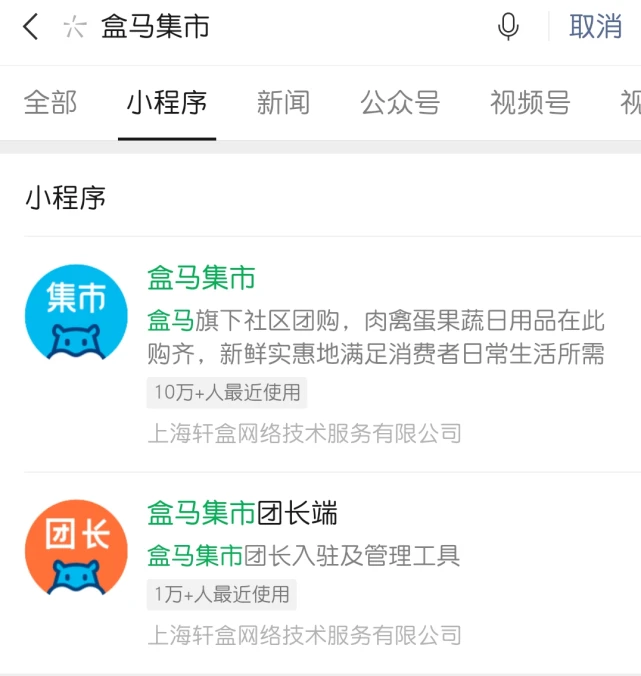
Since then, Alibaba-owned platforms such as Ele.me, Hema Supermarket, and Cainiao Wrap up have also successively entered WeChat Mini Programs.
In 2021, WeChat relaxed restrictions on external links, allowing direct access to external links in point-to-point chat scenarios and trial opening direct access to e-commerce external links in group chat scenarios. Before the "Singles' Day" shopping festival that year, Taobao launched a function to share shopping carts with one click to WeChat group chats and Moments...
Since last year, the "wall-breaking" actions between Alibaba and Tencent have accelerated. In April 2023, DingTalk announced that WeChat users could join DingTalk meetings within WeChat without downloading the app; in September 2023, Alimama and Tencent's advertising platform announced in-depth cooperation, allowing advertising traffic such as WeChat video numbers to be delivered through Alimama UD and directly linked to Taobao and Tmall merchants.
This year, cooperation between the two sides has further accelerated. In February, many netizens found that some Taobao orders could be directly redirected to WeChat Pay for payment; in August, the Taobao Lite app officially added WeChat Pay as an option.
02 A New Turning Point in Mobile Payments

From the past complete ban to the current transformation, the root cause lies in the interests that Taobao cannot let go of and the dilemmas that cannot be resolved.
In recent years, the domestic e-commerce landscape has undergone rapid changes, with decentralization and content-driven trends becoming increasingly evident. Although traditional e-commerce giants like Alibaba and JD.com still dominate the market, their growth rates have slowed.
A Goldman Sachs report shows that Taobao and Tmall's market share fell from 66% in 2019 to around 44% in 2022, a decline of about one-third in four years. Pinduoduo, which surged on low prices, surpassed Alibaba at the end of last year to become the e-commerce platform with the highest market value. Meanwhile, Douyin Shops, Tencent Video shops, Xiaohongshu shops, and Baidu e-commerce are rising rapidly. Taobao can no longer afford to sit idly by.
Integrating WeChat Pay is undoubtedly a crucial step for Taobao to seek a breakthrough in the existing market, akin to a compromise.
Looking at the crucial area of this battle – payment methods. Although Alipay of the Alibaba Group and WeChat Pay sit side by side as the two major mobile payment giants, there are still significant differences in scale and user profiles.
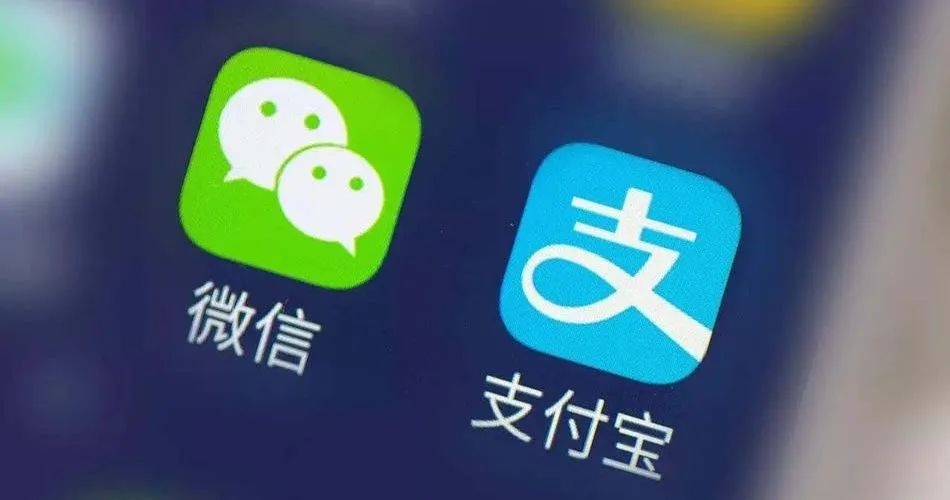
Tencent's latest financial report shows that as of June 30, 2024, the combined monthly active user accounts of WeChat and WeChat International reached 1.371 billion, while Alipay had an average monthly active user base of 893 million. Leveraging its advantage as a "national messaging app," WeChat Pay leads the way in capturing the elderly demographic and lower-tier markets.
"Can you transfer me 200 yuan via Alipay, and I'll pay you back via WeChat?" For a long time, many consumers have been accustomed to using WeChat Wallet and need to exchange money via WeChat to place orders on Taobao, undoubtedly increasing the cost of shopping for users. It is evident that a single payment method can no longer meet user demands.
For Taobao, integrating WeChat Pay will significantly enhance the shopping experience for consumers and help reach more potential users, reducing user churn. After all, emerging e-commerce platforms are on the rise, and Taobao cannot ignore this sense of crisis.
However, obviously, making this decision is not easy. The payment sector, as a core component of the e-commerce ecosystem, is not only a bridge for completing transactions but also a hub for data flow, which has been a concern for the platform for many years.
On one hand, e-commerce is the backbone of the business, and on the other hand, payment services are the main force. Taobao and Alipay, as the two core platforms in the Alibaba ecosystem, are both valuable assets. How to leverage WeChat while protecting Alipay is a question that Taobao needs to carefully weigh.
It is worth noting that the payment market has also evolved into a diversified competitive landscape. In recent years, UnionPay QuickPass, JD.com Pay, and Meituan Pay have also had their respective strengths in market share, user base, and technical capabilities.
Therefore, "if you can't beat them, join them," the Alibaba Group's choices are not just about defending its current pie but also about expanding it.
Alipay also responded, saying, "Openness, collaboration, innovation, and sharing are the fundamental spirits of the internet and the general trend of industry development. In addition to payment products, Alipay will also increase open collaboration in broader ecosystems such as internet technology and AI technology products to create greater business opportunities."
03 Reshaping the Internet Ecosystem
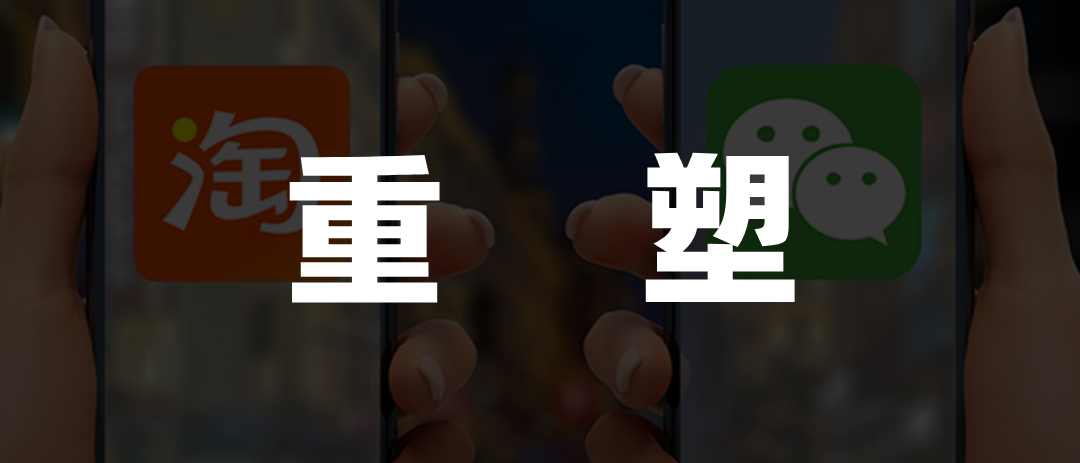
Only after the wall is broken down, everything has just begun.
Currently, the WeChat Pay function on the Taobao interface has not been officially launched. In addition to the known port access, ensuring a smooth payment process without delays or failures due to technical compatibility issues is the primary challenge that Taobao and WeChat must face. Facing the potential traffic pressure brought about by the integration of WeChat Pay, Taobao also needs to prepare for technical upgrades and capacity expansion in advance to ensure that the system can stably carry the first wave and subsequent continuous traffic growth.
Moreover, both parties need to conduct in-depth negotiations on technical connections, responsibility division, and other issues. User habits and benefit distribution are also factors that cannot be ignored.
Nevertheless, interoperability between platforms is the general trend. With the continuous maturing of experience and technology, the "wall-breaking" between major giants is only a matter of time.
On the same day that Taobao and WeChat achieved their century-long handshake, Alipay officially announced its partnership with Meituan, launching the "Meituan Takeout" and "Meituan Hotels" Alipay Mini Programs and offering exclusive coupons and merchant discounts to Alipay users.
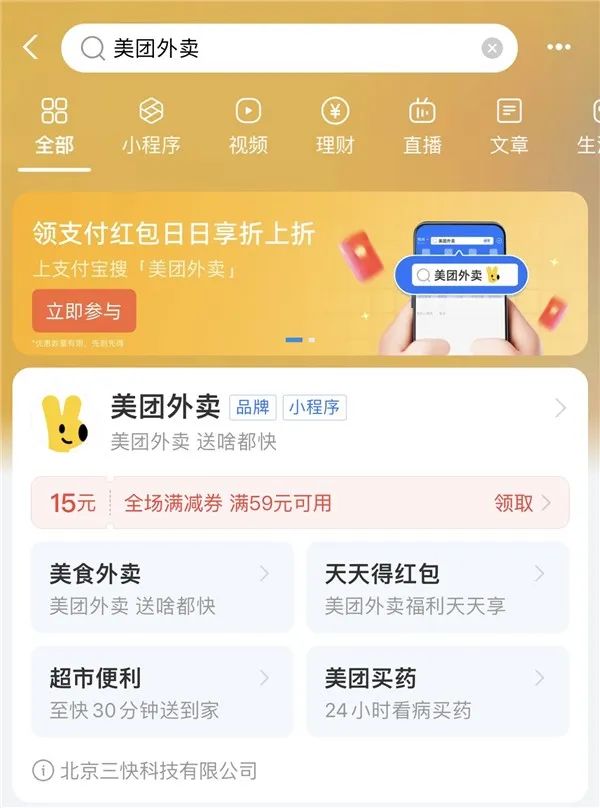
It is not difficult to see that the openness of the entire Alibaba Group, including Taobao, marks the end of the era of closed internet platforms and their arrogant stance to some extent. They can no longer afford to remain in their closed systems but must move towards interoperability and cooperative development. This is driven by policy and is also an inevitable trend of market competition.
Regardless, the partnership between Taobao and WeChat Pay is not only a technical integration but also an important manifestation of openness and cooperation in the internet ecosystem.
Although WeChat Pay's scale is already enormous, it has reached a stage of user growth saturation.
According to Tencent's recent financial report, in the second quarter of 2023, Tencent's revenue in the financial technology and enterprise services sector increased by 4% year-on-year. In the subsequent earnings call, Tencent revealed that while the number of payment transactions continued to grow at a double-digit percentage, the average transaction amount declined.
Platforms can no longer rely on monopoly to retain users and must go deeper. Nowadays, e-commerce is deeply tied to traffic algorithms, and Taobao is no exception: competing in live streaming, GMV, and various artificial holidays. After interoperability, Taobao must optimize the user experience of the payment chain, and cooperation with WeChat Pay cannot merely remain superficial.
However, for now, the market has yet to see more in-depth support and Taobao's countermeasures. What awaits us is undoubtedly a new round of trial and error and competition between giants, as well as a new battlefield in the era where users reign supreme.








